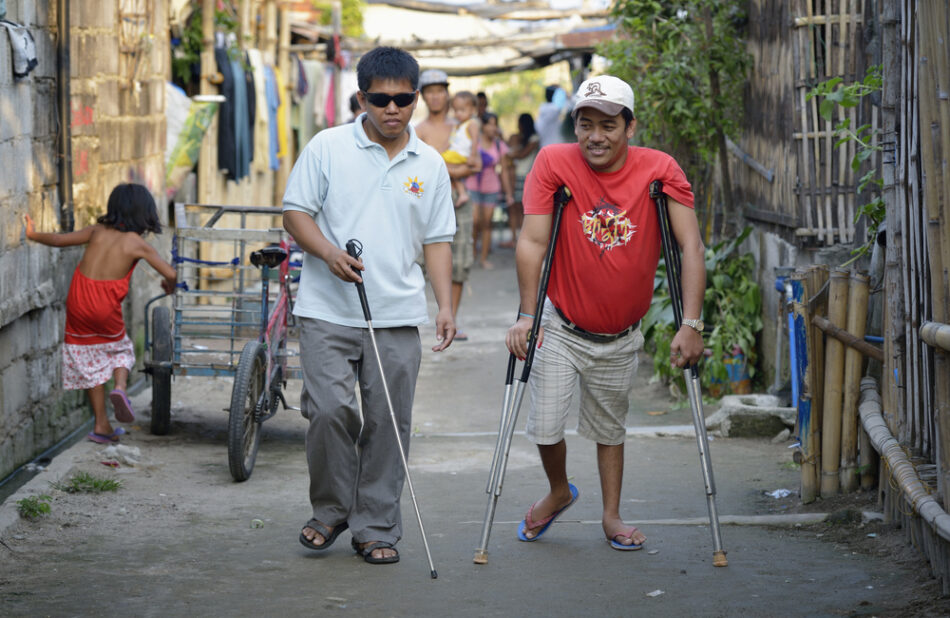Global Lens Reflections on life, the universe, and everything
Disability rights around the world
People with disabilities and their families struggle for greater citizenship
By Paul Jeffrey
Published by response magazine in 2015.
Because she sits in a wheelchair, Hope Ranganayi says many people she encounters aren’t sure how to respond to her.
“I got a new wheelchair, so I’m meeting more people because I’m more mobile. People will be people, so some will love me, while others will look at me and just stare. Some are curious and ask how I live, how I eat, how I go to the bathroom. Some don’t even ask, they just assume. One friend just assumed I had polio. He thought everyone in a wheelchair had polio,” said the 29-year old Zimbabwean woman.
Ms. Ranganayi suffered a spinal cord injury in a 2008 automobile accident. “My legs haven’t worked since then, but my brain works fine. It’s only my legs that are paralyzed,” she said.
As is often the case, denial came before acceptance. “At first I couldn’t accept what had happened to me. I was in denial. I stayed at home and ended up knowing every program on television. But the more I met others with disabilities, and then when I got a wheelchair, it slowly got better and better. Today I am psychologically and physically fine,” she said.
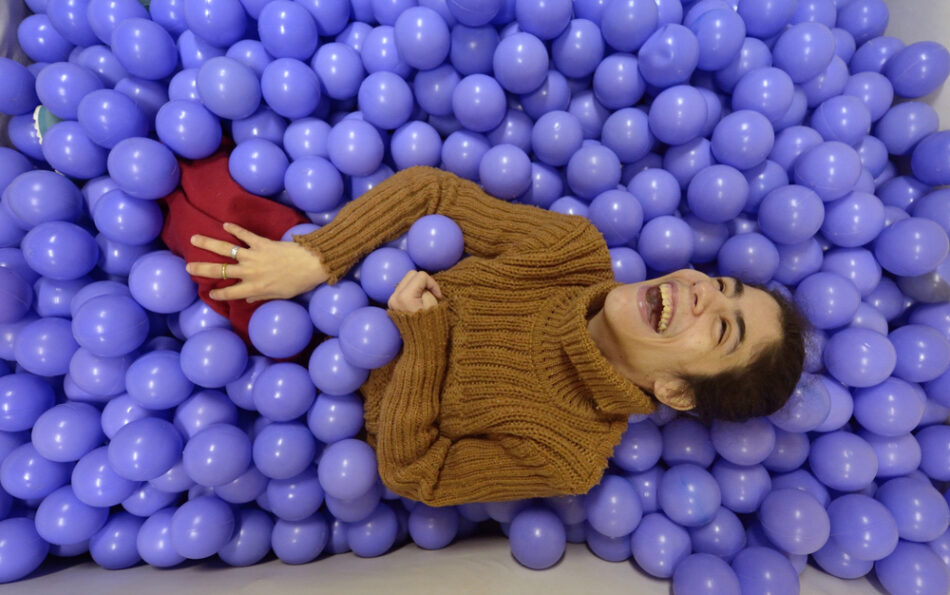
Throughout the global south, people living with disabilities are struggling against ignorance, discrimination, and economic marginalization. Many are refusing to be victims, and with advocates at their side they’re creating new spaces for fuller participation in society.
The family is usually the first space where those with disabilities must struggle for acceptance. In Ms. Ranganayi’s case, this took some time. “At first my family couldn’t understand, and they wanted to spoon-feed me. They never thought I could manage anything on my own. But then I went to some disabled people’s organizations where we are taught to do things ourselves. I learned I need to wash my own clothes and cook my own food, as long as the stove is at a height I can reach. I became more independent, and now my family doesn’t see me as any different from how they saw me before,” she said.
Having the right wheelchair helped. Many poor people living with disabilities end up with donated wheelchairs that don’t fit their bodies or their context. In 2014, Ms. Ranganayi received a new, properly fitted chair from a program supported by CBM, a faith-based organization supporting disability rights around the world. The new chair is foldable, which makes it easier to take on public transportation, and has larger wheels with tubeless tires, making getting around easier and flat tires a thing of the past.
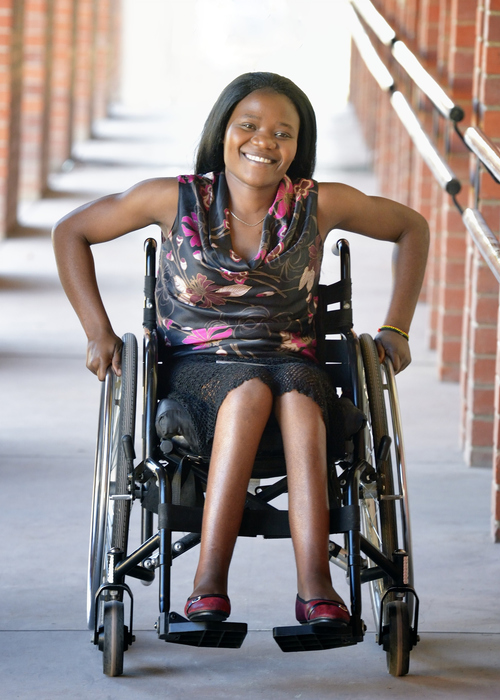
In her new chair, she moves confidently around the National Rehabilitation Centre in Ruwa. She has studied film-making but worries she doesn’t have the finances to pursue that career, so she’s currently studying purchasing and supply management. Her classmates all have some sort of disability.
“Disability comes in diverse forms, and we teach each other and empower each other as we share. But we also need able-bodied friends. We don’t discriminate against able-bodied people, so we also mix with them and they learn a lot from us,” she said.
Ms. Ranganayi would like to see such positive relationships encouraged by government education policy. “We need to integrate children at an early age, the disabled learning together with the able-bodied, so they come to know each other and understand disability at an early age. But at this point the only schools accessible to us are the institutions for the disabled. The government schools aren’t very accessible, so we end up with no choice but to go to institutions where we enjoy access. We need the government to implement policies that are disability friendly. This is especially true in relation to employment. We don’t enjoy equal opportunities. We need policies that favor and empower people with disabilities,” she said.
Tatenda Mafuta also believes in tearing down walls that separate the disabled and non-disabled. The 23-year old Harare resident was born with spina bifida, so has wrestled with mobility issues her whole life. She also recently got a properly fitted chair, which has made life much easier. Ms. Mafuta supports herself and her mother by working in a beauty shop, but also volunteers with a group that educates rural Zimbabweans about the rights of people living with disabilities.
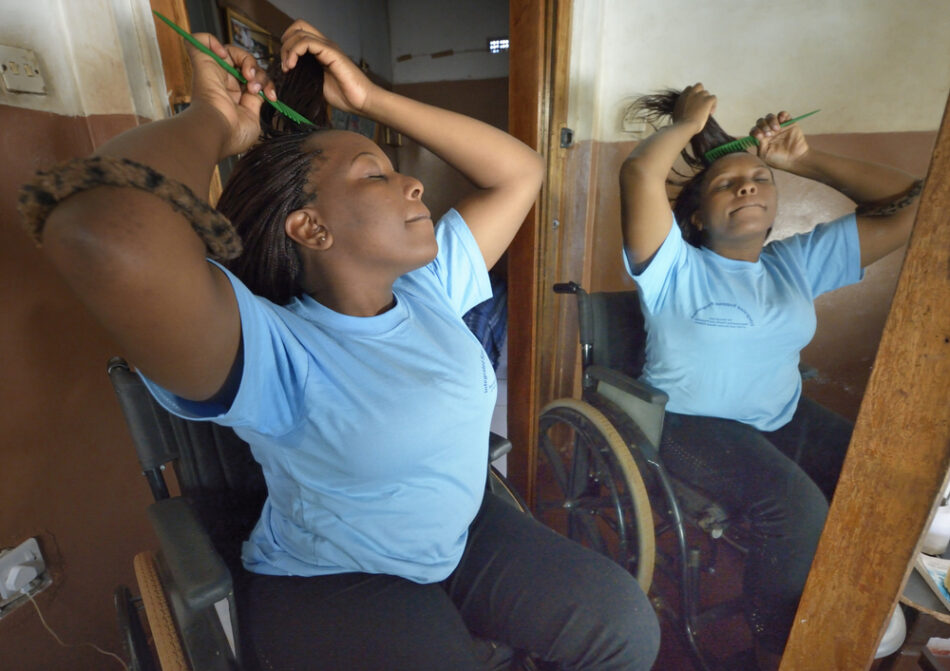
“We go to villages and tell people with disabilities that they have rights, the same rights as others to education. But it’s got to be inclusive education,” she said.
Ms. Mafuta thinks friendship needs to reach across arbitrary lines of disability.
“Many hearing impaired people have just friends who are deaf, for example. We want people with disabilities and people without disabilities to talk with each other and know each other,” she said. “We have to start with inclusive education where everyone is learning together. But in most schools there are no ramps, and you can’t get into the toilets with wheelchairs. We don’t want a situation where people have to carry you from class to class. So we go to schools and we say, ‘You have to reserve a toilet for people with disabilities. Even if you don’t have someone with disabilities now, you may next year. How will they get to class if all the classrooms have steps?’”
Mafuta is determined that change will come. “If the voice of the people keeps pressing and demanding change, then we’ll see things change. That’s why we’re making noise and demanding change in building designs. We’re not well known yet, so that’s why we’re traveling to many villages and sometimes go on radio or television, or have marches where we raise our posters about inclusive education and the need to end discrimination. We all just want to live normal lives,” she said.
Uruguay: “It’s our society that is disabled”
Five thousand miles to the west in South America, children with disabilities are often relegated to “special schools” by regular classroom teachers who don’t have the time or training to deal with a boy or girl with slightly different needs, according to Cecilia Martinez, the director of the Instituto de Buena Voluntad (the Good Will Institute) in Montevideo, Uruguay.
“When the teachers don’t know how to deal with the kids, they’re passed to a special school. Yet once there, a child with disabilities is stuck. They’ll never return to regular schools because they’ve become marked within the system,” Ms. Martinez said.
This situation is unfair to both disabled and non-disabled kids, says the Rev. Ines Simeone, the chaplain at the Institute, which is sponsored by the Methodist Church of Uruguay and has long received support from United Methodist Women Mission Giving.
“Kids who remain in the normal schools suffer because they lose the experience of interacting with children with disabilities. Their vision of the world is truncated,” Ms. Simeone said.
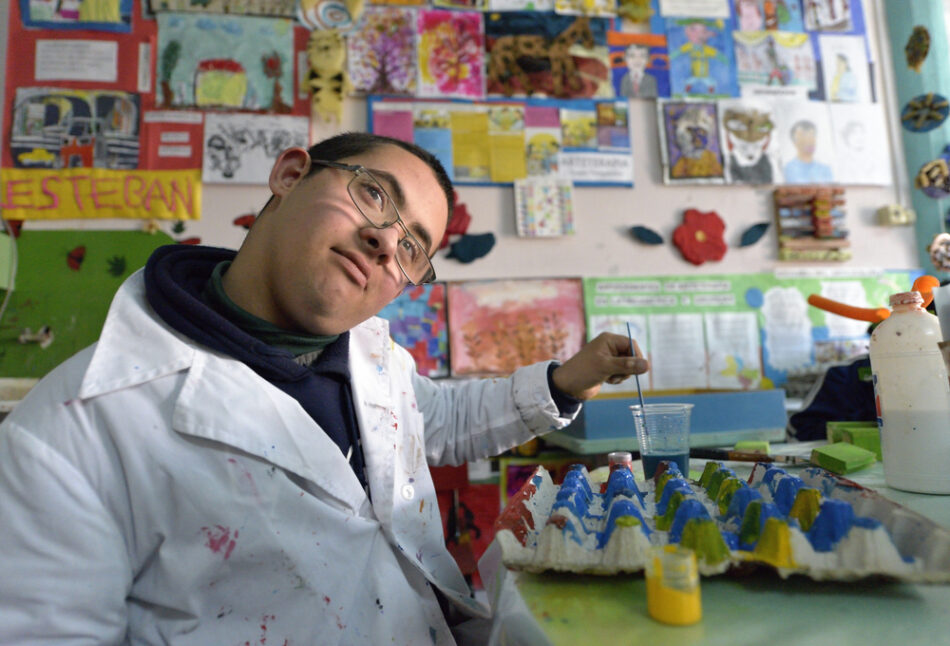
The Institute is located in a poor section of the city which was historically the center of organizing among Montevideo’s working class, and where the Methodist Church has closely accompanied the population for more than 90 years. In the mid-20th Century, the Institute formed as a sort of sheltered workshop where people with disabilities could transform used clothing into salable items, providing both income for themselves as well as inexpensive sturdy clothing for the workers and their families. By the 1990s, however, the importation of cheap clothing led the government to prohibit such work in order to protect local manufacturers. The Institute had to rethink its mission.
Today the Institute provides vocational training in a variety of fields, including sewing, art and carpentry, but Ms. Martinez says the goal of the training isn’t to convert youth into full-time workers in a consumer society. “We’re trying to nurture in the kids the capacity for the fullest citizenship possible,” she said. That includes work, but it focuses more on building autonomy, discipline and responsibility. It also includes developing an appreciation for music and art and social interaction. The Institute recently installed a multi-sensory room, the first of its kind in Uruguay.
Around 120 youth ages 14 and up benefit from the Institute’s work, though a few adults (the oldest is 48) also participate in its programs. Most have abandoned formal education for a variety of reasons, though Ms. Martinez is clear who is responsible for that. “We don’t see the kids as disabled,” she said. “It’s our society that is disabled because we haven’t figured out how to support and care for them.”
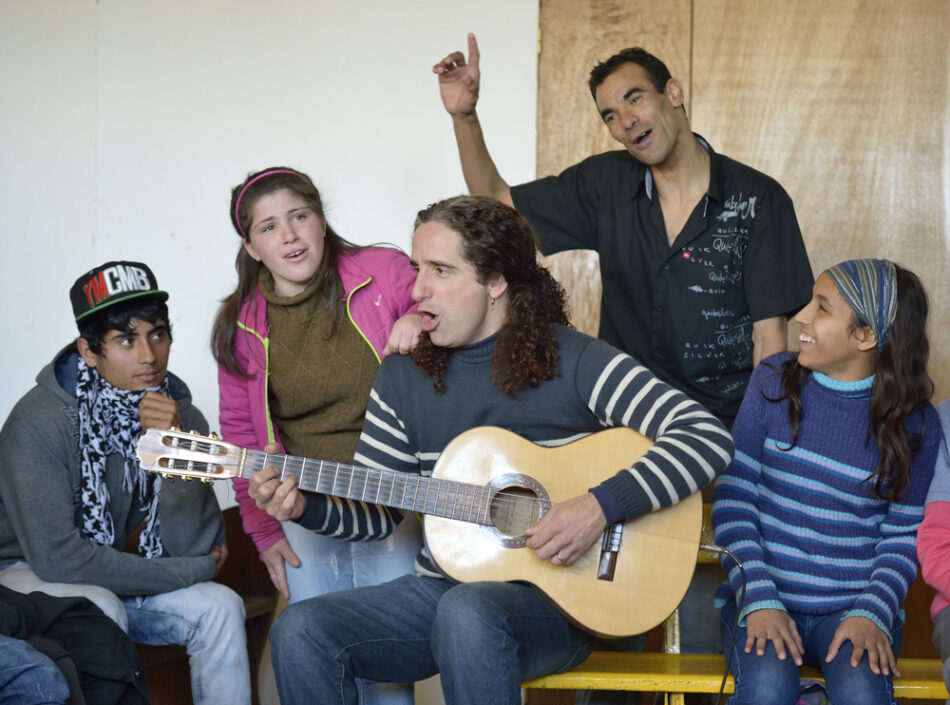
According to Sergio Araujo, a Methodist attorney who chairs the board of directors, the Institute has developed a right-based approach, seeing youth with disabilities as subjects of their own history, rather than objects meriting pity or charity. “Before they were often seen like a baby that needed to be protected, rather than a subject with rights of their own. If they’re in a wheelchair, they have the right to have a ramp at their school so they can have access. If they have physical or emotional problems, they still have a right to be with other kids, and not stuck off somewhere,” he said.
The biggest problem isn’t the disability per se but rather the marginalization of the disabled by the larger society, Mr. Araujo says.
“The majority’s response to the disabled is either to look the other way, to get nervous, or to convert them into objects of charity. The give lots of money every time there’s a televised campaign about people with disabilities, but during the rest of the year they forget about them. They don’t give them a seat on the bus or help the blind across the street. They just ignore them,” he said.
Such invisibility is slowly eroding, however, says Margot Birriel, a disability specialist at the Institute. “For too long we saw disability as a medical problem, and that meant that for some people there was no hope. Rehabilitation couldn’t cure their problem. But over the years we’ve come to realize that disability is a social phenomenon. We are the disabled ones when we don’t recognize the right of others to be in the world in a way that doesn’t fit inside the box we’ve decided to call ‘normal’,” she said.
The Institute, therefore, focuses on quality of life and on happiness.
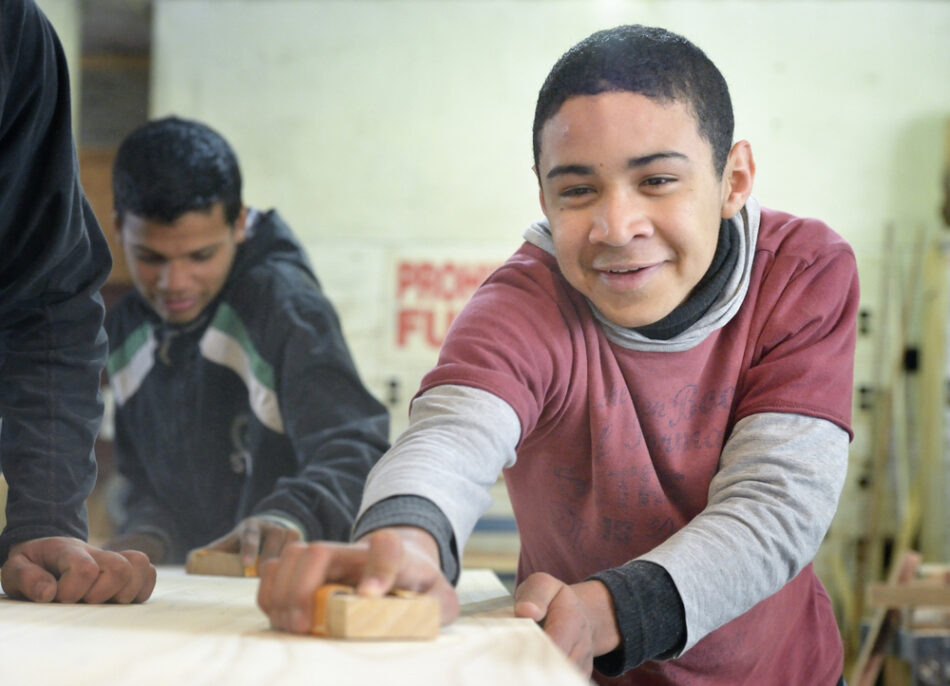
“If some of these kids are born with Down Syndrome or some other problem, they have their own way of being in the world. We try to give them some tools to help them insert themselves in the world, but rehabilitation isn’t the focus. It’s their quality of life that’s important, their right to be happy,” Ms. Birriel said.
Sometimes exercising that right to be happy makes others uncomfortable. Maria Noel Gonzalez, the assistant director, says she once went with a group of kids from the Institute on a city bus. “We got on the bus, and the kids sat down. One girl started talking with the security guard on the bus, and the man simply didn’t know how to respond. The kids were having a good time, laughing about everything, but the man was nervous. He was obviously uncomfortable. He didn’t know what to do. He was immobilized. I felt that he was the one on that bus who was disabled,” she said.
Philippines: “Mothers who have led the way”
In the weeks after Eileen Peralta gave birth to her daughter Erin, she began to notice little things that didn’t seem right. By the time Erin was one year old, Ms. Peralta grew particularly concerned that she wasn’t walking. She consulted her physician, who sent her to a specialist, who in turn told Ms. Peralta that her daughter was probably autistic.
“I was a first-time parent, and at this point I’m panicking,” said Peralta, a native of Manila. “I started looking for someone to help me, and I heard about Kaisaka, a local parents’ group that helps families with children with disabilities. Being a parent alone with these challenges is frightening, but they stepped in to accompany me. We started therapy, and we learned a lot from the workshops and training sessions they held. It’s hard to be the parent of a child with autism. She can’t speak, so we do a lot of nonverbal communication, a lot of sign language. Sometimes she’s really hyperactive, and I’ve got to be patient. The group helped me understand her and better respond to her needs.”
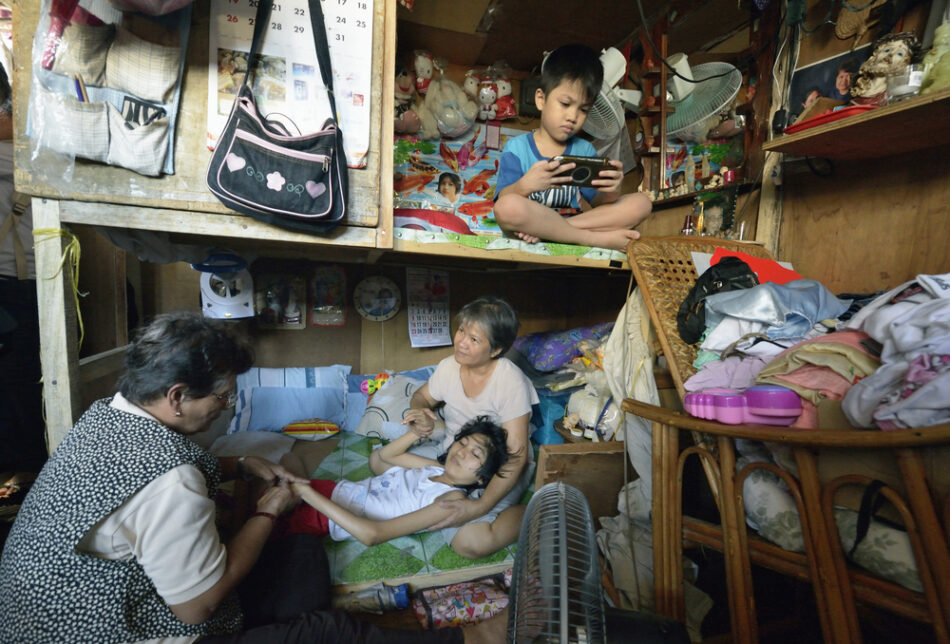
Erin is now 12, and Ms. Peralta is president of Kaisaka, the acronym for Kaisahan ng Magulang at Anak na Maykapansanan–a community based rehabilitation program begun as an outreach program of the Catholic Church in the Malate neighborhood of Manila in the 1980s. In the 1990s it was taken over by the mothers of the kids with disabilities, and they run it today.
Kaisaka works with 115 families which have 145 persons with disabilities. It provides physical and occupational therapy, including to some adults with disabilities. Kaisaka provides home tutoring for kids with disabilities who are having difficulty in school, as well as needed advocacy with government bureaucracies.
Most importantly, Kaisaka offers early identification and intervention in families affected by disability. Such early response can be critical in assuring, for example, that kids get into school.
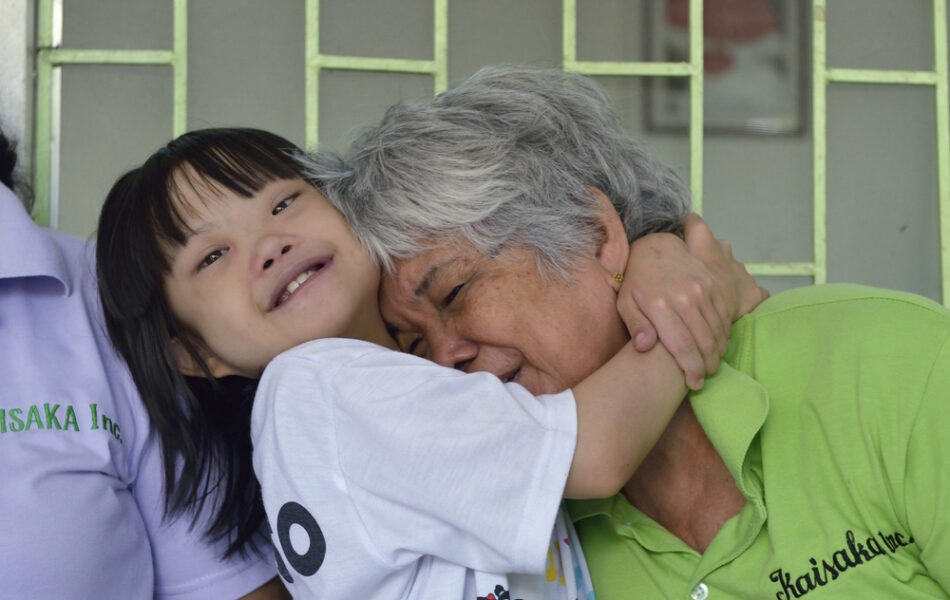
“Before Kaisaka was formed, children with disabilities were usually just kept at home. But we help parents understand their kids and the need to get them out in the community. As we’ve done that, the community has grown more accepting, and people now quickly refer cases to us. It’s been mostly mothers who have led the way in getting kids identified and treated earlier, but now we’re seeing more and more participation from fathers and the rest of the families. Change has been slow, but we’re making progress,” said Jenny Villanueva, Kaisaka’s program coordinator.
Kaisaka’s focus on parent-to-parent work–what Ms. Peralta calls “a motherly approach”–is key to the group’s success. And it explains why the group is helping similar organizations get started in other Manila neighborhoods and neighboring provinces. Like many countries, the Philippines has some good laws and regulations on paper concerning the rights of people with disabilities. It has signed and ratified the United Nations Convention on the Rights of Persons with Disabilities (the U.S. government has signed but not yet ratified the treaty). But translating commitments on paper into effective policies requires passion, and no one brings more enthusiasm to the task than those directly affected. It’s the disabled themselves, along with their family and close friends, who will guarantee full citizenship to those society has too often tried hard not to see.
The Rev. Paul Jeffrey is a United Methodist missionary and senior correspondent for response.
